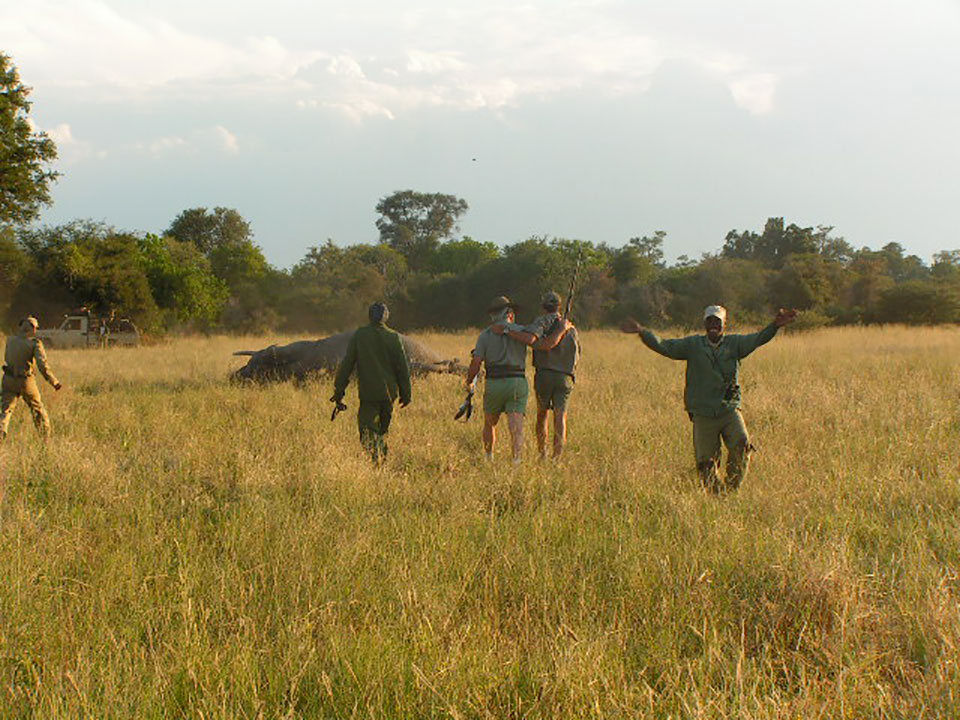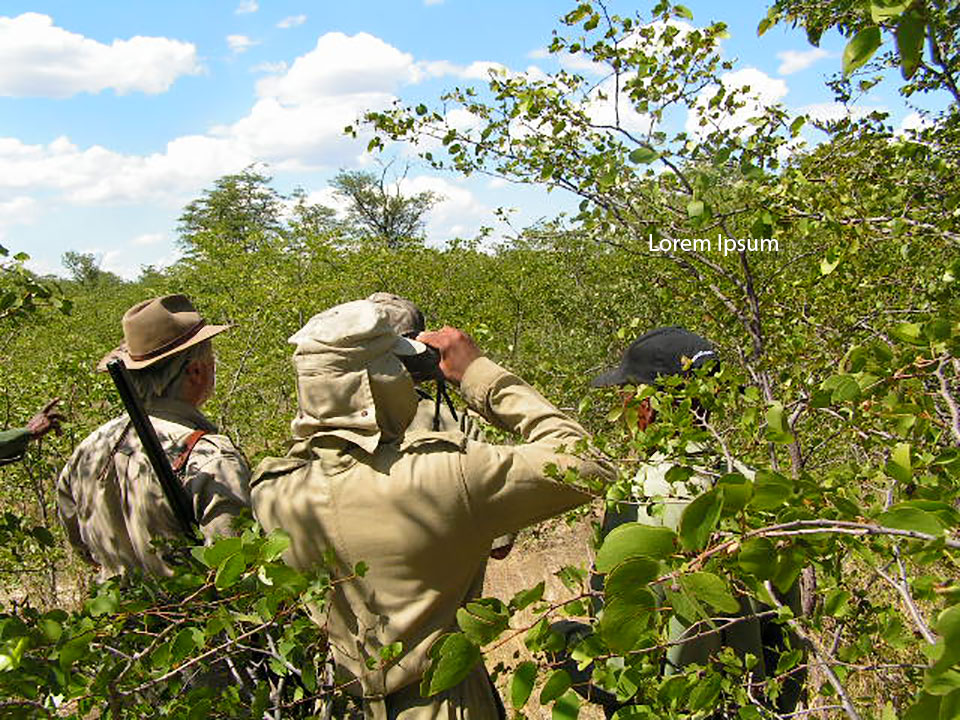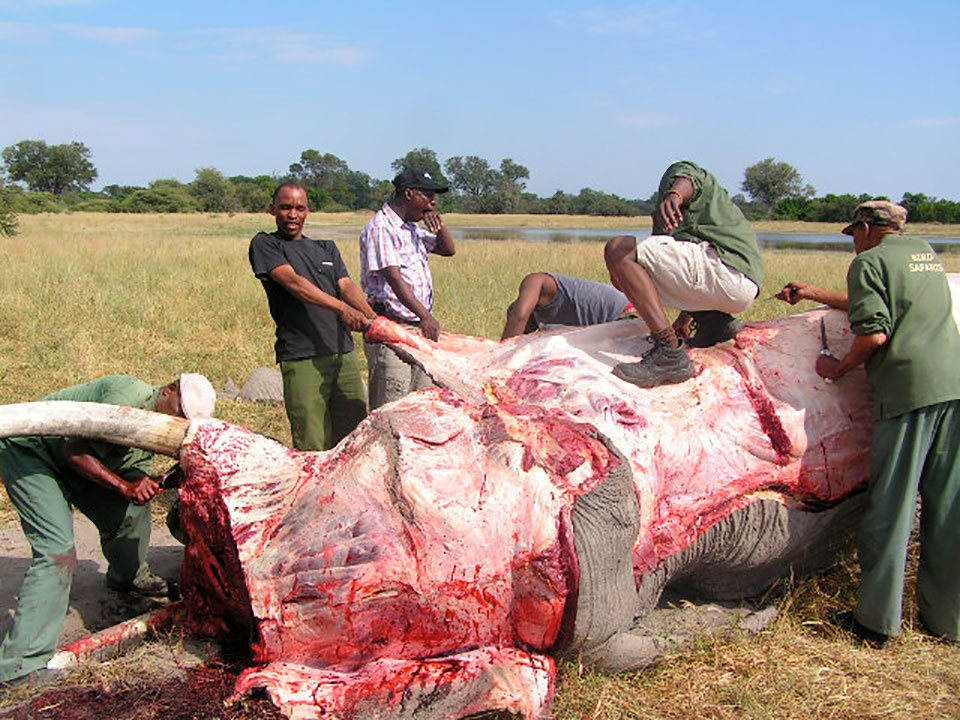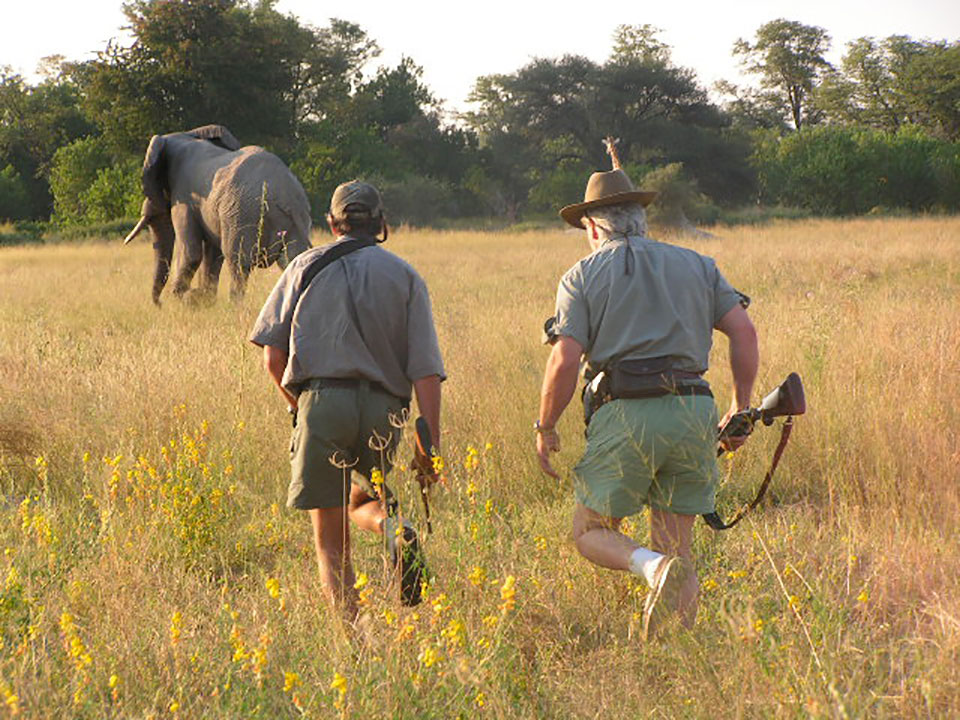I am a recreational hunter myself, and I do realize that the idea that hunting animals can protect wildlife populations and their habitats at first glance seems very counter-intuitive. It is, however, very simple. Allow me to explain.
Hunters are not angels
Let me start by making one thing clear. I am writing this merely to explain the simple mechanisms that make the unpopular practice of recreational hunting an important tool in nature conservation. My mission is NOT to portray hunters as heroic saviors of the world. In all honesty, hunters go hunting because we like that experience. Our primary motive is not nature conservation. We like to hunt and we are willing to pay for the opportunity to go hunting. Therefore, hunters are mainly the paying customers whose money acts as the financial incentive that motivates everybody who benefits from the income to protect habitat and wildlife.
Imagine that a farmer discovers that there are rats under the floor of the chicken coop. Under normal circumstances, he will probably try to have the unwelcome animals killed as fast as possible using traps, poison, and guns. However, what if passionate rat hunters offered him 1,000 dollars for every old male rat that they could shoot on the property? In that case, rats would be much more valuable than chicken to him. The farmer might think that the hunters are crazy; however, it will make perfect sense if he starts to feed the rats and protect them to create a healthy population so that he can sell – and continue to sell – as many old rats as possible. If managed carefully, the rats are a renewable natural resource – a sustainable source of income, just like the chicken that used to live in the coop. If it pays, it stays.

If it pays, it stays!
Now imagine a subsistence farmer in rural Africa who is having trouble with elephants that destroys his crops and lions that kills his livestock. A life-threatening problem to a family that might have to survive on less than 1,000 USD a year. The easy solution is to start killing the animals with traps, poison, and guns. However, if passionate big game hunters offer to pay a lot of money for the opportunity to hunt a few old male elephants and lions, it suddenly becomes more financially viable for a rural community to live with the animals than simply to eradicate them. If it pays, it stays.
It is a universal and straightforward principle. People protect what is valuable to them. Hunting tourism (“trophy hunting”) has an impressive record of accomplishment as a tool in nature conservation. Many species have been saved from extinction because of their value to hunters. This is a fact – the long list includes species all over the world. White Rhino, European Ibex, Pére Davids deer, Black Wildebeest, Bontebok, and Markhor are all well-known examples. The conservation status of even more species has been vastly improved due to the financial incentives for nature conservation that is built into the nature management by hunting tourism model. The benefits go far beyond the protection of species that are interesting to hunters. Simply because the influx of money from the hunting community preserves vast areas of natural habitat in which thousands of species ranging from small mammals to birds, reptiles, insects and plants thrive. Hunting dollars protect habitat. Habitat is the foundation of entire eco-systems.

No hunting = no wildlife
In South Africa alone, an area twice the size of Scotland has been converted from livestock farming into natural habitat mainly funded by hunting tourism. It is without comparison the largest rewilding project in the history of humankind. Almost 20 million large wild animals survive in these vast areas. That is about 40 times as many as when hunting tourism started to grow in South Africa four to five decades ago. We have seen similar improvements in the wake of a growing hunting tourism industry all over southern Africa. Unfortunately, we have also seen wildlife populations collapse in countries that have chosen to ban hunting. Kenya used to be the prime destination for hunting tourism in Africa until the country banned hunting in 1977. It is a fact that the country lost 70-80% of its wildlife since the ban. Without the income from hunting, no one has a strong interest in protecting the habitat and the wild animals outside the national parks where the photo tourists do not flock. It works both ways. It didn’t pay, and it didn’t stay.
The same will happen in the countries currently benefitting from hunting tourism should “trophy hunting” one day be banned. The hunting areas will revert to livestock farming, and the wild animals will be shot to make room for cattle and sheep. Because landowners in Africa also have to pay their bills and will always be looking for the most financially viable use of their land.

Scientists agree
You do not have to take my word for any of this. I am after all a hunter myself and cannot claim to be unbiased. There is, however, plenty of scientific documentation for the claims that I have made. The International Union for Conservation of Nature (IUCN) published a briefing paper in 2016, explaining this with plenty of case stories from a scientific point of view. It is titled “Informing Decisions on Trophy Hunting” and is available for free online. A couple of months ago, 133 scientists and professional nature conservationists had a letter published in the peer-reviewed scientific journal “Science,” documenting that “Trophy hunting bans imperil biodiversity.” There is, in fact, a widespread scientific consensus supporting that hunting tourism – when managed properly – is an important tool in nature conservation. The numbers do not lie.
Despite this, the British government has announced that they wish to ban the import of hunting trophies. They have not presented any evidence to suggest that that hunting is not beneficial to nature conservation and, more importantly: They have not shown any practical alternatives to hunting tourism. So there is no plan for the future management of the large areas currently funded by hunting tourism. There is no plan for the millions of large animals living in these areas, no alternatives to the wild meat produced in the areas, and no consideration for the hundreds of thousands of rural African people who are currently sustained by hunting tourism. It seems they want a ban simply because they do not like hunting.
Don’t pull the plug on wildlife
It is fair enough that people do not like hunting – or hunters for that matter. It is, however, clear that the U.K. government, the anti-hunting M.P.s, and everybody else supporting them on this matter is demonstrating to the world that their personal feelings about hunting matters more to them than the continued survival of endangered species. Otherwise, they would have viable alternatives in place before they try to pull the plug on what is essentially a life support system in operation.

Read more from Jens Ulrik Hogh in Nordic Safari Club.
Published by Vintage Guns Ltd on



